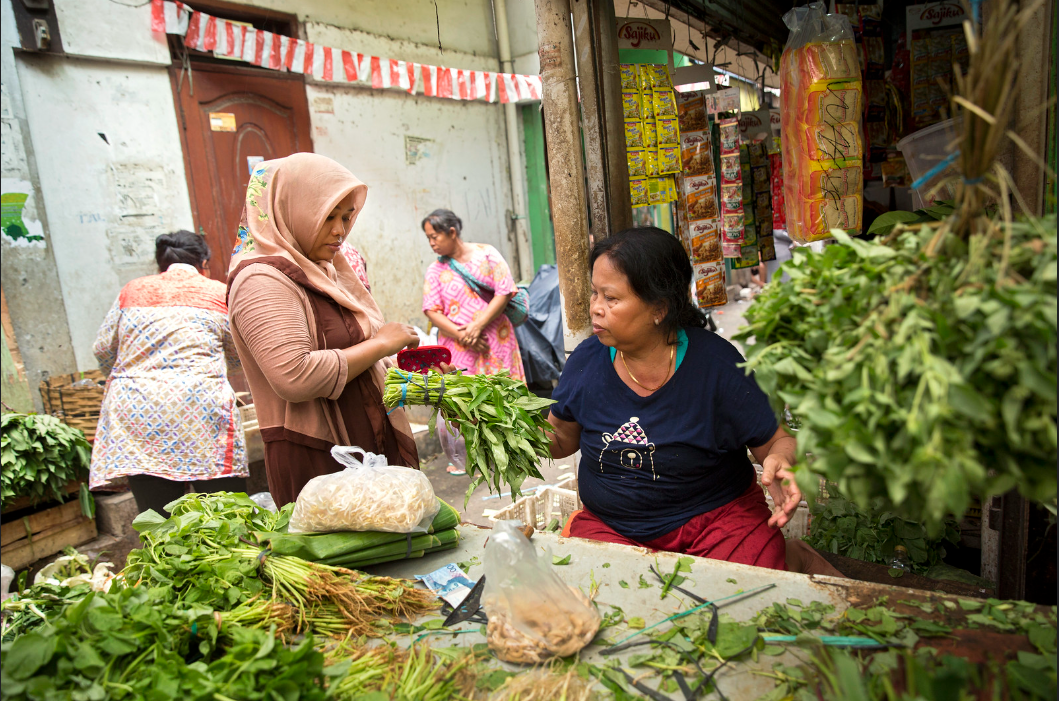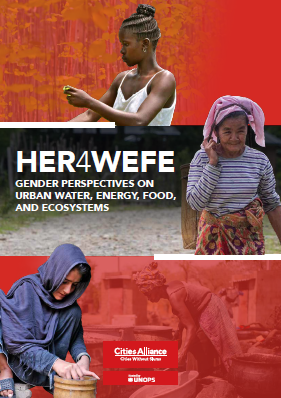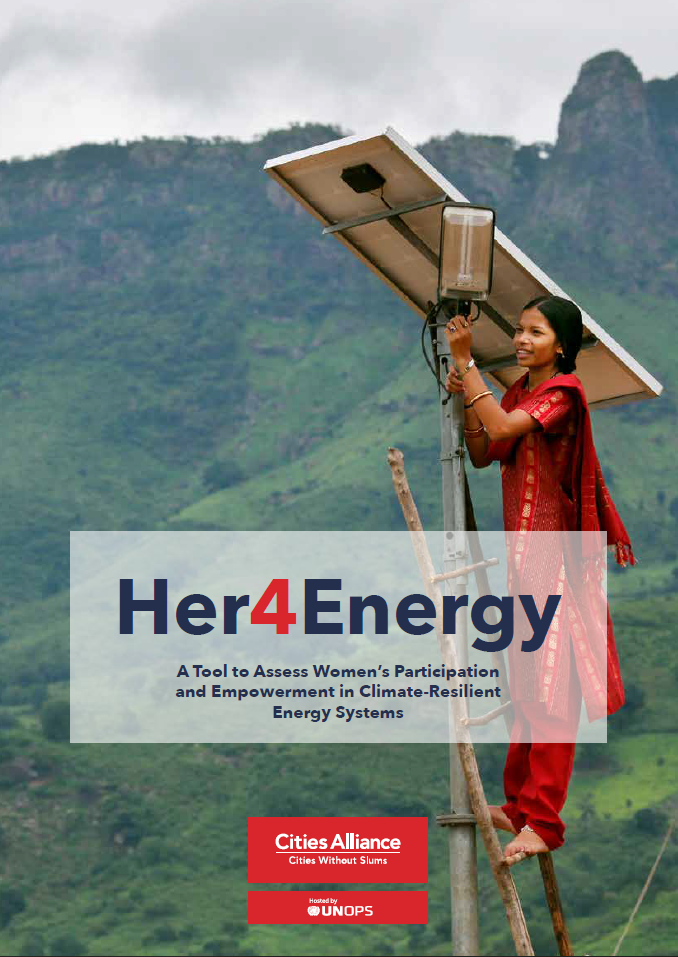- Who We Are
- How We Work
- Regional / Country Initiatives
- Legacy
- Core Themes
- Working Groups
- Portfolio & Results
- Newsroom
- Resources
Her4WEFE: Bridging Gender Gaps for Climate-Resilient Cities


Climate change poses significant challenges to cities, with more frequent extreme weather events, heatwaves, rising sea levels, and increasing food and water insecurity. These challenges often exacerbate existing gender inequalities.
Women, due to socio-economic factors and traditional roles in resource management, are disproportionately affected by these changes and remain underrepresented in decision-making processes.
In response, Cities Alliance has developed and tested tools to assess and track women's engagement and vulnerabilities in the water, food, energy, and environmental sectors.
These tools, grounded in participatory assessments, have been adapted to local contexts, helping communities better understand and address gender-specific challenges. Despite this progress, there remains a critical need for a more integrated approach that links different sectors to guide comprehensive urban planning.
A Water-Energy-Food-Ecosystems (WEFE) perspective offers a way forward by integrating gender considerations across all sectors.
This approach calls for common and integrated strategies that acknowledge the cascading effects, externalities, and interconnections between water, energy, and food security. By doing so, cities can create more inclusive, sustainable, and resilient urban environments.
This new toolkit aims to equip urban practitioners, local authorities, and civil society organisations with practical approaches to apply gender-sensitive considerations to the WEFE nexus in cities.
It provides a comprehensive overview of the intersections between gender and the WEFE sectors, highlighting the importance of integrating gender perspectives into urban development policies.
By utilising the assessment tools included here—individually or in combination—local stakeholders can enhance their gender capacity, foster inclusive dialogue, and develop integrated solutions that are fair, effective, and sustainable.
This approach not only ensures more equitable access to resources but also strengthens the resilience and adaptability of urban communities in the face of complex challenges.


